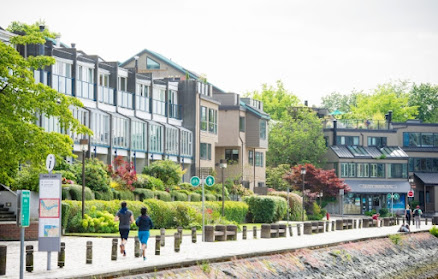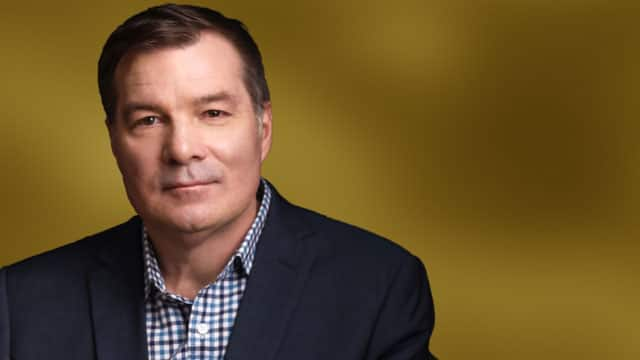On Thursday October 21, Vancouver City Council started to hear from 170 speakers who have signed up to respond to the staff report on a proposed redevelopment strategy for South Shore False Creek. Only a portion of the speakers were heard and the public discussion will continue on Tuesday while I am sleeping. Why? Because instead of going to Russia this week to judge a planning competition, as planned, I will be participating in an all-night zoom session with the other jurors from France, Spain, UK, Singapore and Russia.
I'm glad I cancelled the Russian trip since this week Moscow goes into Covid lockdown https://gizmodo.com/moscow-to-enter-lockdown-next-week-as-covid-19-cases-sk-1847914717
But back to False Creek. As noted in my last blogpost, I did an interview with CBC television on my initial thoughts. While most of it rightly ended up on the cutting room floor, I did come across this account of the discussion which some of you might find of interest. https://www.cbc.ca/news/canada/british-columbia/vancouver-false-creek-south-plan-1.6208873
For reference, it is copied below:
City of Vancouver plan would more than triple the number of homes in False Creek South
Residents raise concerns about affordability and security in the neighbourhood moving forward
About 80 per cent of False Creek is owned by the City of Vancouver, and with leases on that land expiring in the next 15 to 25 years, the report says the city has the opportunity to renew the original plan for the neighbourhood first developed in the 1970s.
The report proposes that development in the area happen over two phases. Their preferred plan for new sites and open space could begin as early as next year — and would be developed into 2040.
There are currently approximately 5,500 people living in False Creek South in a total of 1,849 housing units. City-owned land in the False Creek South area spans from the Burrard Street Bridge to the Cambie Bridge, running along Sixth and Fourth avenues. It doesn't include Granville Island.
Staff believe that by the end of the Phase 1, the number of housing units in the area could more than double. Phase 2 could potentially add a further 2,875 units.
The report says the development would be funded by the Property Endowment Fund and the Vancouver Affordable Housing Endowment Fund.
Staff is now looking for direction from city council for the next planning steps which will involve all city departments and further public engagement, as nothing has been set in stone just yet.
Michael Geller, a retired architect and real estate consultant, was the special co-ordinator for the redevelopment of False Creek South in 1975.
He said the original vision was to have a mixed community of one-third low income, one-third middle-income and one-third high income in the neighbourhood. In the 1970s, Geller said, half of Vancouverites thought it should be a park, so the land became half residential, half park — a move he says means the city can now develop a more "intensive use" of the land moving forward.
"This is public land in a prime location," he said. "I'm pleased that the city doesn't intend that it become a duplication of what we see on the north shore of False Creek."
Residents concerned about affordability
False Creek South resident Richard Evans says he's "cautious" about the city's plan and worries about affordability and security moving forward.
Evans, who has lived in a housing co-op in False Creek South with his family since 1986, is concerned about the planned increase in market rentals and market leases in the neighbourhood.
"The proportion of rental to co-op to non-market rental and after market rental and strata, that balance is a very critical piece," he said.
Neighbour Maria Roth agrees. She's lived in the area since 1997 and describes the area as an inclusive place where everyone feels safe and secure.
She worries primarily about affordability and sustainability.
"We all know that supply on its own is not going to answer the affordability crisis issue," she said.
"We also know that when it comes to sustainability planning, tearing down perfectly viable housing before it's reached the end of its useful life is also not a good thing and that's also part of what the plan is proposing."
Planning process
Evans and Roth both feel left out of the planning process for their community.
Deputy city manager Karen Levitt said there were extensive consultations with the community in 2017 and 2018. But Evans said after that, planning for the neighbourhood became closed — everything started happening behind closed doors, and information and conversation did not include community members.
Levitt said it's "standard practice" to hold conversations about city-owned land "in camera" — closed to the public.
Section 165.2 of the Vancouver Charter says that meetings that can be held in-camera include "the acquisition, disposition or expropriation of land or improvements, if the council considers that disclosure could reasonably be expected to harm the interests of the city."
A citywide engagement session was held earlier this year. There was broad support for increased density, housing for families, accessibility and development of vacant lands in a phased approach to minimize disruption in the neighbourhood.
False Creek residents, specifically, wanted their current leases extended.
Geller said many people in False Creek South will be upset because they will lose their homes, but the land was leased for 60 years — so leaseholders knew this would eventually happen.
"This is not a complete shock. This is something that has been contemplated for the last 45 years," he said.
Vancouver Coun. Sarah Kirby-Yung says one of her primary concerns about the plan is the displacement of existing residents. But, she said, all the land will remain city-owned and city staff will enter lease extension negotiations and redevelopment discussions with co-op housing stakeholders later this year.
She said the plan is for development to be phased so that, ultimately, nobody is displaced.
"Staff are really trying to strike the balance between maintaining the principles of this neighbourhood … and respecting the fact that this is public land and needs to be utilized to the best benefit of residents and being respectful to the existing residents so they don't have to fear," she said, speaking Thursday on CBC's The Early Edition.
Kirby-Yung also said city staff have identified a space where False Creek Elementary School could be relocated and expanded to accommodate an influx of new residents.




I want to voice my appreciation for your kind-heartedness in support of people that have the need for help with that situation. Your real commitment to passing the solution all through appears to be definitely useful and have in every case encouraged folks much like me to realize their objectives. The interesting advice signifies so much a person like me and substantially more to my fellow workers. With thanks; from everyone of us.
ReplyDelete섯다
The best glass facade cleaning company in Riyadh relies on the latest advanced machinery and equipment that are used to clean large facades, and the cleaning and polishing process takes place in a short time, so that the place does not hang for a long time. The company provides the service of a large team of customer service personnel, who are present throughout the day in Serving the company's valued customers.
ReplyDeleteشركة تنظيف واجهات زجاج بالرياض
شركة تنظيف واجهات بالرياض
I visit your blog. It is really useful and easy to understand. Hope everyone gets benefit. Thanks for sharing your Knowledge and experience with us.
ReplyDeletewordpress
ufa88kh.blogspot
youtube
play online
This comment has been removed by the author.
ReplyDelete